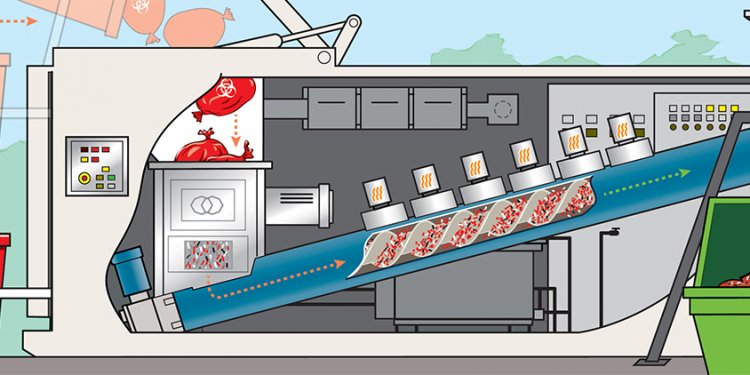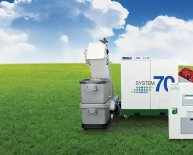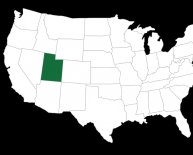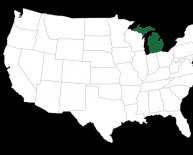
Medical Waste Disposal
Non-hazardous pharmaceutical waste sounds benign enough. After all, it’s got “non-hazardous” in the name. And if it’s non-hazardous, it can be disposed of along with the regular trash, right? Not so fast.
Classifying Non-Hazardous Pharmaceutical Waste
Non-hazardous pharmaceutical waste is a bit of a misnomer in that it’s not as harmless as it sounds. It still poses health risks to the environment. Better terminology is non-RCRA pharmaceutical waste. RCRA stands for Resource Conservation and Recovery Act, the legislation through which the Environmental Protection Agency governs how hazardous waste must be treated and disposed of.
Non-hazardous or non-RCRA waste is waste that is not governed by RCRA laws. But it still must be disposed of properly in order to protect our communities and comply with other state and federal regulations.
Non-RCRA pharmaceutical waste accounts for about 85 percent of all hospital pharmacy inventory waste, and includes:
Disposing of Non-Hazardous Pharmaceutical Waste
The best way to keep non-RCRA pharmaceutical waste out of our landfills and water supply is to segregate it and have it incinerated. Non-RCRA pharmaceutical waste often is disposed of in white containers with blue lids. Pharmaceutical waste containers should be clearly labeled “for incineration.” It’s important to train all staff on what should be disposed of in this way versus RCRA hazardous waste and biohazardous waste containers.
As a reminder, all medical waste should be housed in a secure area away from the public. Non-RCRA pharmaceutical waste, hazardous waste and biohazardous waste should be collected and disposed of by a state- and federally-compliant pharmaceutical waste disposal service.
The Resource Conservation and Recovery Act (RCRA) was written by legislators — and it shows. While the act outlines endless “don’ts, ” it can be difficult to determine how you should handle pharmaceutical waste. Fortunately, you’ve come to the right place. Here’s how to dispose of pharmaceutical waste.
1. All Pharmaceutical Waste Isn’t Created Equal
Hazardous (RCRA), non-hazardous, trace chemotherapy and controlled substances — it all has to be handled separately and properly according to its classification. It’s also subject to the rules of a number of regulatory agencies. Some (but not all) pharmaceutical waste must be treated as hazardous waste and handled accordingly.
2. Biohazardous Waste and Pharmaceutical Waste Must Be Treated Differently
Some assume that treating pharmaceutical waste as biohazardous waste is the appropriate thing to do, but that’s not the case. Biohazardous waste is sterilized to remove the infectious potential and then delivered to a landfill for final disposal. When you dispose of pharmaceutical waste with biohazardous waste, it will ultimately end up in a landfill and seep into our water supply (or end up in surface water). Because of this, pharma waste needs to be segregated properly and treated by incineration. This breaks down the complex chemicals to render them safe.
3. Fines Aren’t the Only Thing to Worry About
Regulatory angencies often publicize waste disposal violators, so be sure to consider how negative headlines could harm your business when deciding how to dispose of pharmaceutical waste.
4. Chemotherapy Waste Must Be Kept Separate and Treated Appropriately
Chemotherapy waste must be segregated and disposed of separately from biohazardous waste and pharmaceutical waste. Miscategorizing it is not only against Arizona regulations, but ADEQ requires chemotherapy waste to be incinerated or disposed of at either an approved solid waste or hazardous waste disposal facility.
5. Disposal of Controlled Substances Must Meet the Stringent Requirements of the DEA
The United States Drug Enforcement Agency requires that all expired and/or unused controlled substances be returned to the manufacturer or destroyed at a DEA/EPA-licensed incinerator. Both processes require using a DEA-licensed reverse distributor to transport the pharmaceuticals and file the required paperwork.
Save Yourself from Regulatory Headaches
Proper pharmaceutical waste disposal is complex, and there’s a ton of bad information out there. Working with an experienced pharmaceutical waste disposal company like US Bio-Clean can keep your business in compliance with federal and state regulations, and out of hot water with the ADEQ, EPA, USDOT and the DEA.
A dental office is a busy place. Patients coming and going throughout the day. Cleanings, X-rays, fillings, crowns, root canals. All of that activity makes for a challenging logistical problem — what to do with the resulting hazardous waste.
Here, we offer advice on how to dispose of the six most common types of dental waste so you can keep your patients safe, the environment clean and your business compliant.

















